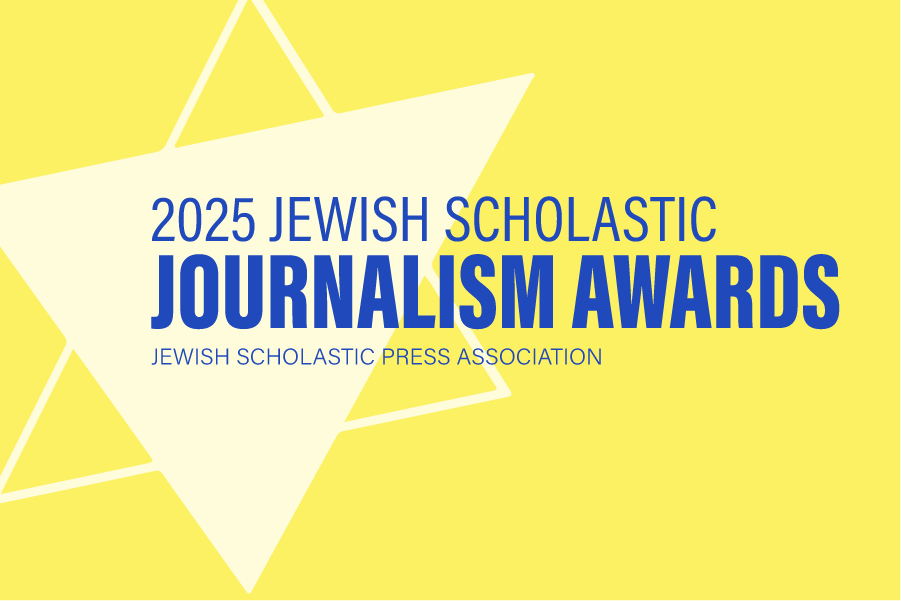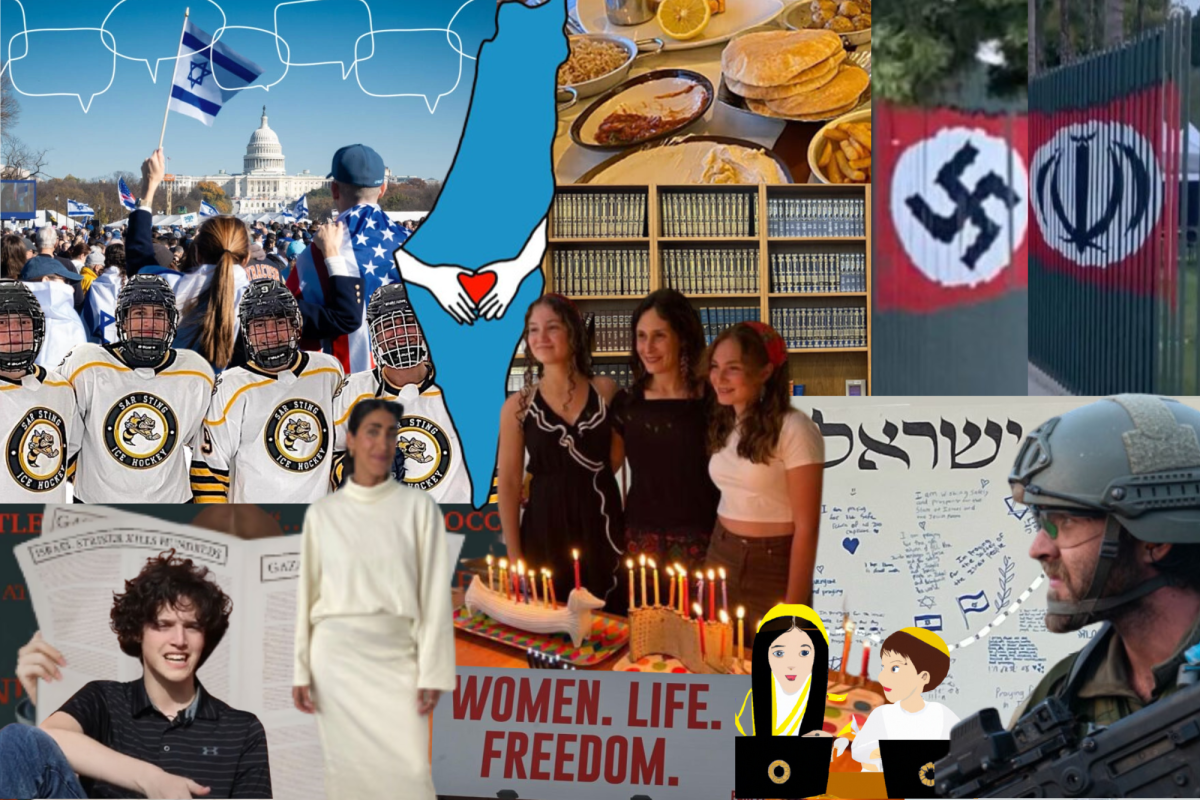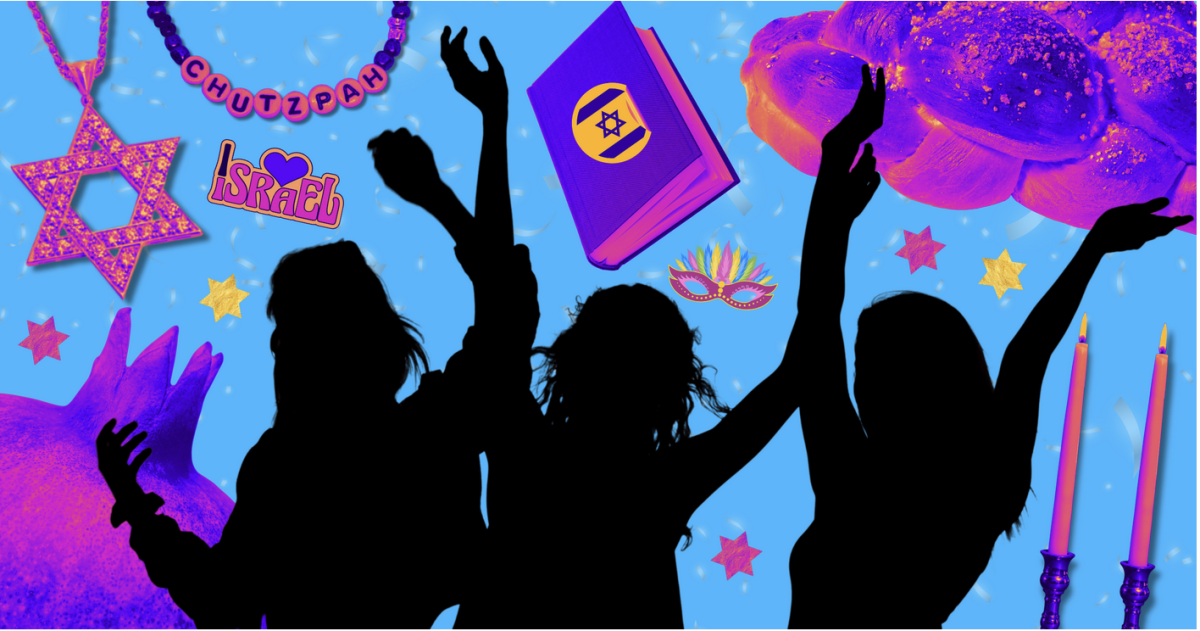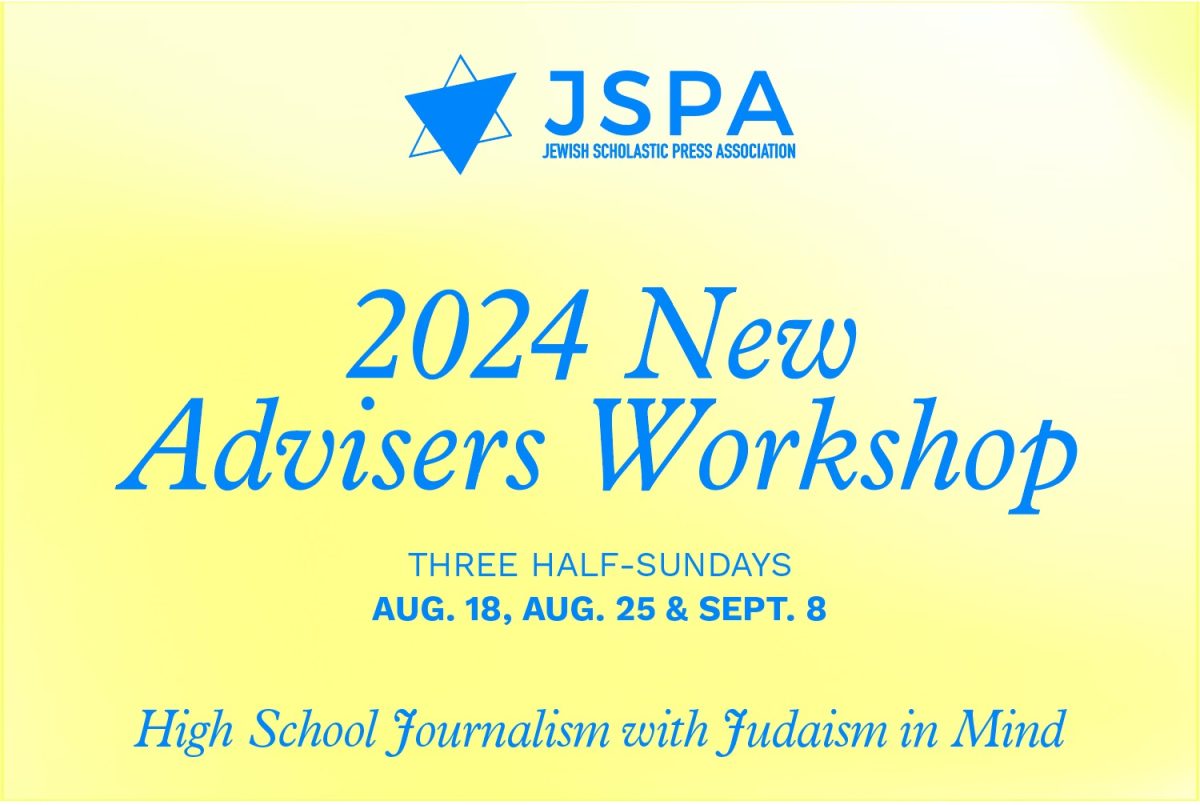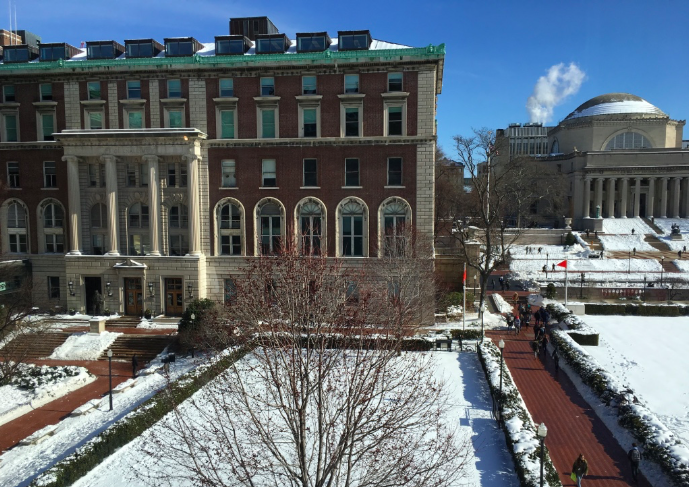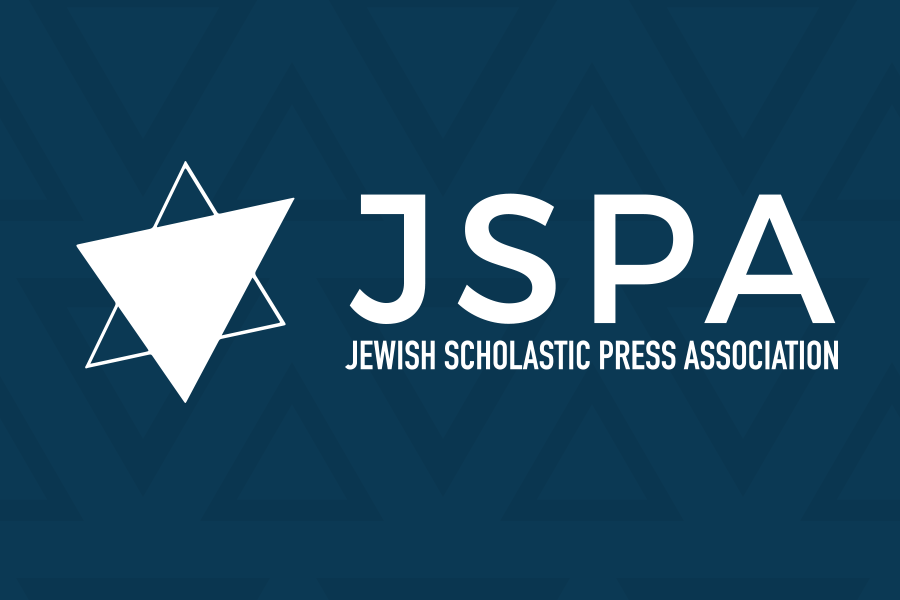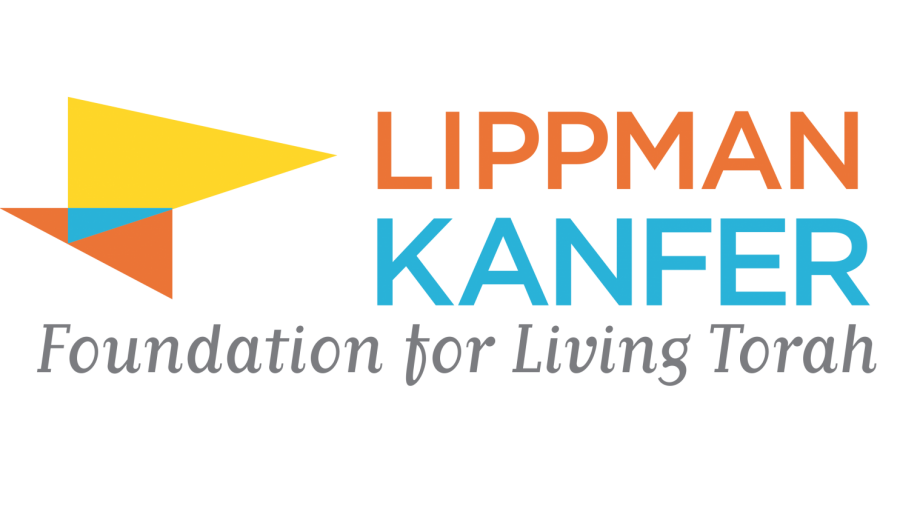A story about a Jewish school’s censorship of Gaza-related coverage on its student website has won the top prize in the 2025 Jewish Scholastic Journalism Awards, announced via live webcast on March 23.
The Grand Prize in Jewish Scholastic Journalism was awarded to “School censors story about Muslim teens and war,” by the staff of The Boiling Point of Shalhevet High School in Los Angeles, Calif.
The original, censored story was published on the paper’s website in March 2024 and removed after complaints from parents, students and others who saw it after it was posted on Instagram more than a week later, the story said.
“Reactions to the Instagram included accusations that Shalhevet was giving pro-Palestinians a platform for misinformation and hate,” the story said. It said Head of School Rabbi David Block told the faculty adviser to “take down the story from all Boiling Point postings later that day.”
“Rabbi Block said the article was not something ‘our community can hear right now,’ in light of the horrific attacks on Israel that took place on Oct. 7,” the Boiling Point article said. “He said this was supported by the way in which some people reacted.”
“It’s not that I agree that such an article can never be shared or understand the other side,” it quoted Rabbi Block as saying. “But to me, I provide education for our community, and so if our community can’t handle something, I do have to consider that.”
The story described views both for and against the original article, which had been called “The Exact Same Hurt” and featured interviews with Los Angeles Muslim teenagers a few months after Hamas’s attack.
It also quoted the paper’s editor-in-chief, Tali Liebenthal, who defended the censored article.
“If we’re going to come out of this stronger and fight for Israel and fight for our right to have a state, and fight against all the people who think that we’re wrong, we need to understand that side,” said Tali in the article.
Judges commended the students for “extend[ing] their reach outside their own community to report on Muslim teens,” and said the article addressed the challenges of covering conflict with their own school sponsors as well as within their community.
“Sometimes even excellent high school journalism can confront conflict with the sponsors of their news organization,” the judges wrote. They said the article “makes strong points on all sides without bias, and displays a deep understanding of the role journalism can play within an academic environment.”
Tali Liebenthal said it was the first time the paper had been censored, and the story had been a group effort involving not only interviewers and writers but the paper’s editorial board. But also, she said, some key contributors to the story did not want their names on it.
“Considering the backlash that the original story received, students were understandably worried about having their names attached to anything related to it,” Tali said after learning of the award.
She said she was proud of everyone who worked on it for contributing in a difficult moment for the paper and the school.
“We don’t normally have prior review and we have never been censored before,” Tali said in an interview with JSPA. “Even if the original story hadn’t been so contentious, us being censored for the first time is definitely a story that should be covered. Our readers know that we operate independently from the school, and if that were to be changed our readers need to know that, and they need to know why.”
The censorship story also won First Place in the category of News and Feature Reporting on Interfaith or Intercultural Events. In all, there were 12 categories in the competition, with the Grand Prize chosen from among the first-place winners.
The 2025 contest honored work published by high school students during calendar 2024.
Winners of the Grand Prize receive a Grand Prize plaque naming the newspaper and story title, along with a recommendation from the American Jewish Press Association for a summer internship at a professional Jewish news source.
JSPA Executive Director Joelle Keene said that any student who worked on the story would be eligible for the recommendation.
This year’s competition saw 197 entries from schools across the U.S. as well as in England and India. Winners were from both Jewish and secular high schools, led by Atlanta Jewish Academy Palette (Atlanta, Ga. and The Lion’s Tale of Charles E. Smith Jewish Day School (Rockville, Md.) with seven awards each.
Other school winners in addition to Shalhevet included RampageWired of Hyman Brand Hebrew Academy (Overland Park, Kan.), Tatler, of the Lakeside School (Seattle, Wash.), Frisch News Network of Yeshivat Frisch (Paramus, N.J.), the Panther Post of YULA Girls High School (Los Angeles); Yeshiva of Flatbush (Brooklyn, N.Y.); Hamodiya of the Berman Hebrew Academy (Rockville, Md.), and The Perspective, a non-school affiliated student publication covering Jewish life in Shelby County, Tenn., where Memphis is located.
In addition, teen fellows writing for the Jewish Telegraphic Agency (JTA) received all six awards in the newly created categories of news and opinion articles by high schoolers published in professional publications.
Entries were judged on a variety of criteria including quality of writing and reporting, coverage of Jewish topics; courage and sensitivity in covering Jewish communities; and overall journalistic excellence.
Judges for the Grand Prize said the censorship report “addresses not only the very difficult challenges of how journalists cover their own community, but also how sometimes even excellent high school journalism can confront conflict with the sponsors of their news organization…It makes strong points on all sides without bias, and displays a deep understanding of the role journalism can play within an academic environment.”
Other topics covered in winning stories included various opinions on antisemitism and pro-Gaza tent encampments on college campuses; pro-Israel demonstrations in Washington, D.C. and elsewhere; how Israeli and American Jews organized to help people in Israel during wartime; polling and other reports on the 2024 elections (both national and local); changes in student lunch habits; a summer research trip to Greenland, a video game, and the April 8 total solar eclipse.
An opinion video documentary by Millie Schwartz of Yeshivat Frisch chronicled the experiences of teachers, students and administrators in the days and weeks after the Oct. 7 Hamas attacks and how people’s lives, views and families were changed.
“Jewish- and Israel-related subjects were covered endlessly in professional news media in 2024, and still so many dimensions of what was happening went unreported,” said JSPA Executive Director Joelle Keene.
“Our contest entries showed how dramatically high school students stepped up,” she said. “While still managing to cover elections and school events, all year long they continued to tell their communities and the world about what their alumni, relatives, teachers and peers were going through, how they were helping and how they were thinking about it.
“In the process they not only brought new information and perspectives to light, but created an invaluable record of a terrifying year.”
Judging was led by Susan Freudenheim, former managing editor of the Jewish Journal of Greater Los Angeles and JSPA’s vice president. Ms. Freudenheim worked for 13 years at the Los Angeles Times as arts editor and staff writer, and most recently served as Executive Director of Jewish World Watch.
There were six judges in all. Ms. Freudenheim was joined by Gary Rosenblatt, JSPA board member and editor and publisher of The Jewish Week of New York from 1993 until June 2020; Ryan Smith, a writer in the Office of Communications at Kenyon College, who was a reporter and editor for 25 years at newspapers including The Jewish Journal of Greater Los Angeles; Jackson Krule, Senior Visual Producer of the Players’ Tribune and photojournalist known especially for his photos in the book American Shtetl: The Making of Kiryas Joel, a Hasidic Village in Upstate New York; Orli Lowe, former assistant book editor of the Los Angeles Times; and Leila Miller, former Mexico City correspondent for the Los Angeles Times, now a freelance journalist appearing in the New York Times, Washington Post and The Economist.
Here are all the winners, with judges’ comments.
Category 1: News reporting on Jewish communities, religion, education, institutions, activism, culture, leaders or personalities
First place: Or Do They?: Students Follow Up on Their Cause Fair Proposals, by Oliver Mason, Palette, Atlanta Jewish Academy.
Judges’ comment: A smart story that’s not afraid to ask questions about a school assignment.
Second place: Jewish writers getting canceled for Zionism, by Sylvia Saad, The Phoenix, Yeshivah of Flatbush, Brooklyn, N.Y.
Judges’ comment: A concise yet comprehensive look at a notable new trend.
Third place: Students on the 2024 presidential election, by Mira Schulman, The Panther Post, YULA High School Girls Division, Los Angeles, Calif.
Judges’ comment: Colorful quotes from students enlivened this story about an overwhelmingly pro-Trump poll result.
Category 2: Feature reporting on Jewish communities, religion, education, institutions, activism, culture, leaders or personalities
First Place: “Alumni and seniors navigate new campus reality as anti-Israel protests explode at universities,” by Sophie Katz and Arieh Elad, The Boiling Point, Shalhevet High School, Los Angeles, Calif.
Judges’ comment: An extremely well-reported, thoughtful overview of several high school alumni’s college experiences, as well as the current decisions for college applicants in this age of campus unrest over the war against Hamas.
Second Place: “Balancing the Ballot: Aa view of the role of Jews in elections,“by Stella Muzin, Ari Kittrie and Gigi Gordon, The Lion’s Tale. Charles E. Smith Jewish Day School, Rockville, Md.
Judges’ comment: A thoughtful and well reported piece on Jewish voting power, including multiple points of view.
Third Place: “Modern Civil Asset Forfeiture Reform and Judaism’s Two Cents on Reform,” by Noah Bergh, Rampage Wired, Hyman Brand Hebrew Academy, Overland Park, Kan.
Judges’ comment: An excellent and enterprising exploration of a little-known search and seizure law, and how it compares to Jewish law.
Category 3: News and Features related to Israel
First place: “Lakeside, UPrep graduates participate in campus Gaza protests,” by Samara Nagel, Tatler, Lakeside School, Seattle, Wash.
Judges’ comment: Nagel expertly navigates the pitfalls of bias in offering a scrupulously fair yet compassionate portrait of two Jewish students with polar-opposite views on the Israel-Hamas conflict.
Second place: “From handymen to teachers to hotel sales managers, Jews everywhere pitch in to make displaced Israelis feel at home,” by Arieh Elad, The Boiling Point, Shalhevet High School, Los Angeles, Calif.
Judges’ comment: An in-depth report on a variety of volunteers, in the U.S. and Israel, exploring how and why they are helping displaced Israelis find a degree of normalcy during the war.
Third place: “The Results of Palette’s Israel-Hamas War Polling,” by Elisha Feit Mann, Palette. Atlanta Jewish Academy.
Judges’ comment: A thorough and enlightening look at students’ attitudes toward the Israel-Hamas conflict, complete with easy-to-read graphs and thoughtful analysis.
CATEGORY 4: News or feature reporting on interreligious or intercultural events
First place: “School censors story about LA Muslim teens and war,” by the Boiling Point Staff, The Boiling Point, Shalhevet High School, Los Angeles, Calif.
Judges’ comment: This well-written and reported article tackles an extremely difficult subject of how to cover the aftermath of the horrors of Oct. 7. When the students extended their reach outside their own community to report on Muslim teens, they were asked to remove the initial article. This award-winning piece explains the journalists’ motives, as well as the administrators decision, with clarity and understanding of the difficulty of the situation.
Second Place: “Teaching customs,” by Ruby Kotok, The Lion’s Tale, Charles E. Smith Jewish Day School, Rockville, Md.
Judges’ comment: Well-sourced and organized, this article is a clearly written approach to an important topic.
Third Place: Faculty Corner: Featuring Morah Michal Lashansky, by Kayla Minsk, Palette, Atlanta Jewish Academy.
Judges’ comment: This article does a comprehensive job of telling the story of a faculty member with an interesting past.
CATEGORY 5: Ongoing reporting on any subject in Category 1,2,3 or 4. Ongoing reporting means at least two stories on two different days, covering a story that is evolving with additional facts or occurrences.
First Place: “The Results of Palette’s American Politics Polling” by Asher Lytton, and “Mock-election Results Reveal Striking Shifts from Last Year’s Politics Pollng,” by Oliver Mason, Palette, Atlanta Jewish Academy
Judges’ comment: Illuminating and clearly written, these timely pieces are a solid analysis of two surveys of student political views and preferences.
CATEGORY 6: Opinion: Non-first-person opinion on any Jewish or Israel-related story. This category would encompass unsigned editorials.
First Place: Elections: We Can Do Better,” by the Boiling Point Editorial Board, The Boiling Point, Shalhevet High School, written by Tali Liebenthal
Judges’ comment: This piece clearly and convincingly delineated problems with school elections and offered specific, actionable solutions.
Second Place: “A Year Later: How Jewish Life Has Changed Since Oct. 7,” by Maiya Blumenthal and Eliana Wolf, The Lion’s Tale, Charles E. Smith Jewish Day School, Rockville, Md.
Judges’ comment: This comprehensive story uses a strong mix of anecdotes and statistics to develop a formidable argument for Jewish unity.
Third place: “Bring Them Home” by The Lion’s Tale (unsigned editorial). The Lion’s Tale, Charles E. Smith Jewish Day School, Rockville, Md.
Judges’ comment: This compact piece lays out a simple but compelling message and concludes with a powerful question.
Category 7: Opinion: First person opinion or first-person experience regarding Judaism, Jewish culture or identity, or Israel, or any Jewish or Israel-related story
First Place, “Opinion: American Leadership Must Do More To Address Increasing Antisemitism,” by Sophie Schwartz, The Lion’s Tale, Charles E. Smith Jewish Day School, Rockville, Md.
Judges’ comment: This piece makes excellent use of a personal and poignant anecdote in the development of a well-reasoned argument calling on local officials to condemn antisemitism by name much more strongly and swiftly than they have been.
Second place: “My Experience Spending a Week With 14 Antisemites,” by Amy Hollander, Hamodiya, Melvin J. Berman Hebrew Academy. Rockville, Md.
Judges’ comment: The only Jewish attendee at a week-long anti-slavery symposium for high-schoolers from around the world, the author offers an honest and heartfelt reflection on her mostly unsuccessful attempts to explain and defend Israel’s actions in Gaza. The judges especially appreciated the forthrightness of her writing about how her failure doesn’t mean she mustn’t keep trying.
Third place: “My Jewish Life at Houston High School,” by Nava Vanderwalde, The Perspective, Memphis, Tenn.
Judges’ comment: Lovely visuals and detail in this well-written piece by a graduate of an Orthodox middle school who has to navigate culture shock and some anti-Israel sentiment as she adjusts to life at a much bigger public high school.
Category 8: Photojournalism: Photograph attached to any Jewish or israel-related story
First Place: “Rabbi E and AJA High School students view the solar eclipse on April 8, 2024,” photo by Oliver Mason, Palette, Atlanta Jewish Academy
Judges’ comment: This photo captures a sweet, humorous, and unexpected moment with a great sense of timing and composition. The image stands out because it layers multiple visual elements: the expressive joy of the man in the foreground, the sense of collective experience with the students behind him, and the well-balanced framing that keeps the viewer’s eye moving through the scene.
Second Place, “Motzei Shabbos Musical Madness,” photo by Oliver Mason, Palette, Atlanta Jewish Academy, Atlanta, Ga.
Judges’ comment: This photo shows raw energy, capturing the electrifying connection between the performer and the crowd in a moment of pure excitement. The dynamic lighting, contrasting deep reds, greens, and glowing neon accents, adds to the intensity, immersing the viewer in the atmosphere of the scene.
Third Place: “RamsFan Sports Weekly 9/20,” photo by Jake Sosland, RampageWired, Hyman Brand Hebrew Academy, Overland Park, Kan..
Judges’ comment: This photo captures the raw emotion of the moment, showing how much this game meant to the team. The framing pulls the viewer into that feeling, making it less about the final score and more about what it means to play together and give it everything.
Category 9: Layout, design, illustration or infographic attached to any Jewish or Israel-related story
First Place: “Clergy Crisis,” cover page design by Gigi Gordon, Stella Muzin, Lily Rulnick, The Lion’s Tale, Charles E. Smith Jewish Day School, Rockville, Md.
Judges’ comment: This is an exceptionally creative way to illustrate a challenging story that isn’t easily visualized. What could have easily felt gimmicky instead comes across as striking and effective. The subtlety of the execution enhances the message, making the absence feel tangible without being heavy-handed. The thoughtful composition and layering add depth, reinforcing the story’s emotional impact while maintaining a professional and polished design.
Second Place: – Nice Jewish Baller, by Ellie Glickman, RampageWired, Hyman Brand Hebrew Academy, Overland Park, Kan.
Judges’ comment: Incorporating tefillin into the design was a creative and unexpected way to weave a Jewish element into a basketball story. While many might have relied on a kippah or tzitzit, the use of the leather straps adds a distinctive and striking visual element. It’s a surprising yet highly effective choice that deepens the connection between faith and athletics in a fresh, compelling way.
Third Place: Minimester photo collage by Gila Sadinoff, Palette, Atlanta Jewish Academy, Atlanta. Ga.
Judges’ comment: The photo collage is an effective way to visually reinforce the variety and excitement of Minimester, seamlessly complementing the text. The top-right image stands out in particular—its dynamic composition and sense of motion immediately draw the eye and capture the energy of the experience. The collage as a whole provides a well-rounded snapshot of the different activities, making the story feel immersive and engaging.
Category 10: Video or Podcast reporting of any Jewish or Israel-related story
First Place: Project Ayin Le’Tziyon, video documentary by Millie Schwartz, Frisch News Network, Yeshivat Frisch, Paramus, N.J.
Judges’ comment: What sets this piece apart is its masterful weaving of multiple narratives, demonstrating both careful interviewing and thoughtful editing. The documentary not only treats the subject matter with the gravity it deserves but also sheds light on an often-overlooked perspective, American students and faculty who experienced October 7th in Israel. Their accounts, and the way they are presented, make this an unforgettable and vital piece of storytelling, approaching its topic with the skill and sensitivity of seasoned filmmakers.
Second Place: 5 Days in the HBHA PTO Rams Cafe, video documentary by Ethan Hobbs, RampageWired, Hyman Brand Hebrew Academy, Overland Park, Kan.
Judges’ comment: This documentary takes a clever and engaging approach by structuring the story around the daily operations of the Rams Cafe, following its behind-the-scenes activities from Monday through Thursday. The voiceover is well-recorded and effectively guides the audience through the B-roll, enhancing the storytelling. The interviews are thoughtfully conducted and strategically placed within different parts of the cafe, adding depth and authenticity to the narrative. What could have been a challenging topic to make compelling is instead brought to life with strong visuals, clear narration, and well-executed editing, making for an informative and engaging documentary.
Third Place: HBHA Civil Rights Learning in 2024, video documentary by Ethan Hobbs, RampageWired, Hyman Brand Hebrew Academy, Overland Park, Kan.
Judges’ comment: This documentary provides a powerful and deeply thoughtful look at the 9th and 10th graders’ civil rights journey through Mississippi, Alabama, and Tennessee. It captures not only the historical significance of the trip but also the personal impact it had on the students as they engaged with the history of the Civil Rights Movement.
One of the most striking moments comes from an unexpected source—an interview with the group’s Black bus driver, who shared his reflections on Emmett Till and what it meant to stand in the space where those tragic events unfolded. This moment added an emotional weight to the documentary, elevating it beyond a retelling of history to a deeply human and personal experience. The documentary’s serious and respectful approach allows the gravity of these stories to shine through, making it an impactful piece of storytelling.
Category 11: Israel or Jewish-related stories by students in professional publications — News and features.
First place: “Big public high school stages ‘Fiddler’ in midst of Mideast war,” by Kyle Gerstel, Jewish Telegraphic Agency (JTA)
Judges’ comment: Gerstel, through reflective, deep reporting, uncovers the complex layers of feelings of students and faculty involved in the presentation of “Fiddler On The Roof” at a large public school in the Pennsylvania suburbs in the midst of the Israel-Hamas war.
Second Place: In Dallas, these Jewish teens understand the appeal of gun ownership, by Aria Knepler-Pearl, Jewish Telegraphic Agency (JTA)
Judges’ comment: With solid research and probing interviews, Knepler-Pearl describes how the prevalent gun culture in Texas, combined with growing anti-Semitism nationally, has had an impact on many young Jews in the state who plan to own guns in the future.
Third Place: “Queer Jewish teens feel abandoned by LGBT groups that condemn Israel,” by Micah Bidner, Jewish Telegraphic Agency (JTA)
Judges’ comment: A thorough and sensitive treatment of how the Israel-Hamas conflict is having a profound impact on young Jews in the LGBTQ community in very different ways, depending on their position on the war.
Category 12: Opinion pieces on Jewish or Israel-related issues in professional publications.
First Place: “In remote Greenland, a NYC yeshiva kid becomes an ‘Arctic citizen,'” by Sarah Silverman, Jewish Telegraphic Agency (JTA)
Judges’ comment: Silverman, a yeshiva student on an arctic research program in Greenland for teens from around the world, takes a deep dive into her physical and social surroundings and comes away learning about nature, foreign attitudes toward America, Jewish customs, and, most of all, herself.
Second Place: My sister’s experience at Barnard has taught me to pick a college where I will feel safe,by Georgia Rose, Jewish Telegraphic Agency (JTA)
Judges’ comment: In this powerful and poignant essay, Ross, a high school junior, describes how her sister’s experience of anti-Semitism at Barnard College affects her own decision about choosing a college.
Third Place: “Slither.io, my favorite online video game, is letting antisemitism spoil the fun,” by James Corman, Jewish Telegraphic Agency (JTA).
Judges’ comment: Upset to learn that his favorite online video game has no safeguards against anti-Semitism and other forms of bigotry, Corman digs deep in this first-rate report, interviewing a wide range of experts on social media and learning that the problem is all-too-common.
2025 Grand Prize in Jewish Scholastic Journalism
Chosen from among the first-place winners in the other categories.
School censors story about LA Muslim teens and war,” by the Boiling Point Staff, The Boiling Point, Shalhevet High School, Los Angeles, Calif.
Judges’ comment: This article, written by the staff of the Boiling Point, addresses not only the very difficult challenges of how journalists cover their own community, but also how sometimes even excellent high school journalism can confront conflict with the sponsors of their news organization. The story explains a volatile situation, which resulted in an article being removed from publication by the school, and explores the responses of the student journalists, the school adviser and the school administration. It makes strong points on all sides without bias, and displays a deep understanding of the role journalism can play within an academic environment. A very thoughtful and well-executed piece.
